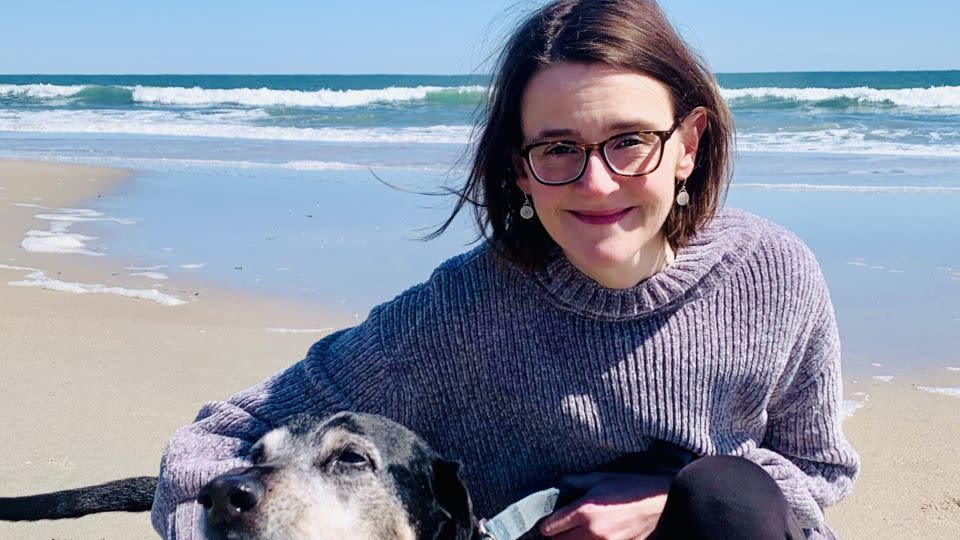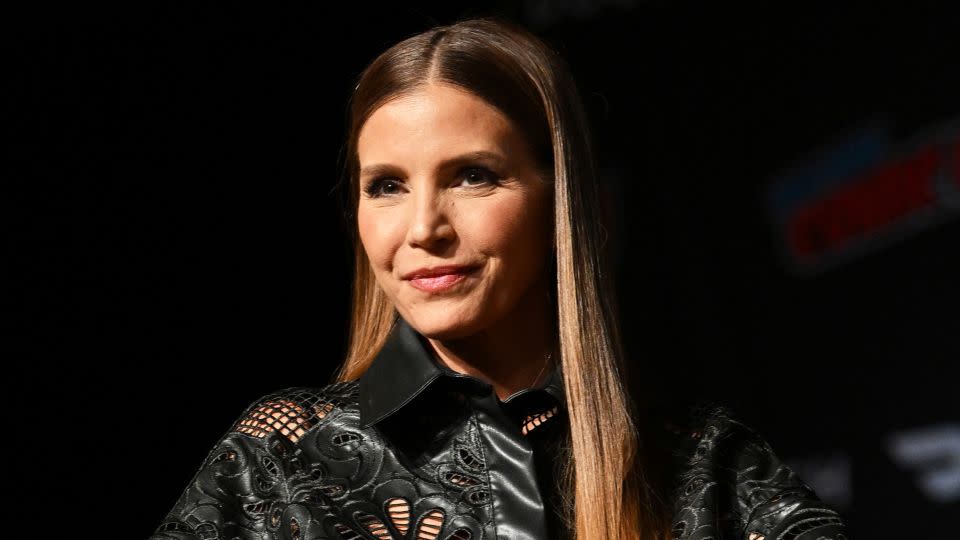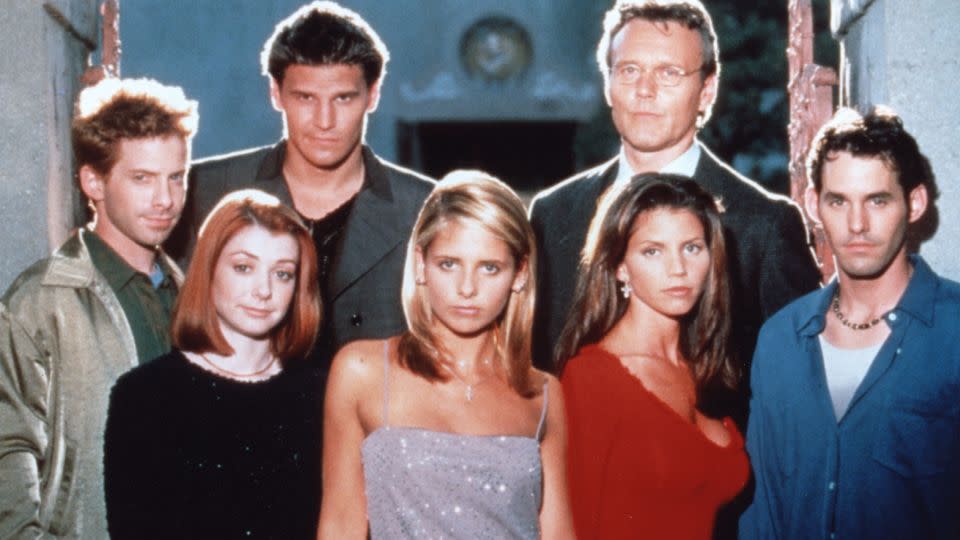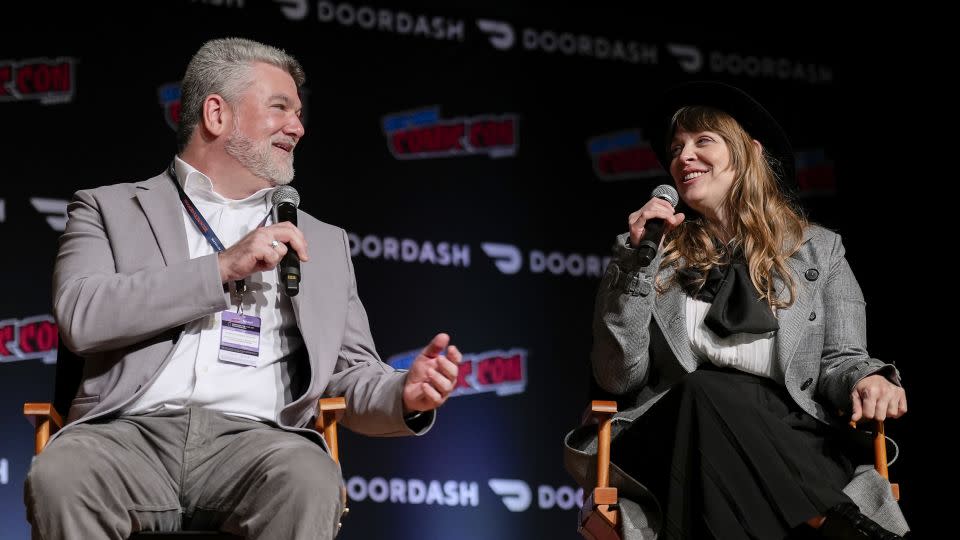Opinion: ‘Buffy the Vampire Slayer’ lives again
- Oops!Something went wrong.Please try again later.
- Oops!Something went wrong.Please try again later.
- Oops!Something went wrong.Please try again later.
- Oops!Something went wrong.Please try again later.
Editor’s Note: Sara Stewart is a film and culture writer who lives in western Pennsylvania. The views expressed here are her own. View more opinion on CNN.
For “Buffy the Vampire Slayer” fans, news of a podcast called “Slayers,” which is set 10 years after the “Buffy” story ended and picks up where the series left off in 2013, may stir up a lot of feelings. Hope, nostalgia, cringe — basically the full range of emotions, for a fandom that’s been through the wringer since the beloved series ended two decades ago. Most of that turbulence stems from multiple allegations of verbal abuse and cruelty by the series creator, Joss Whedon, who has largely stayed silent since the accusations first began to surface in 2017, the year the #MeToo movement went mainstream.

In a 2022 interview with New York magazine, Whedon finally addressed many of the claims, though never with a definitive confession or apology; he referred to some conduct as “not mannerly,” and told the magazine, “Could I have done marriage better? Don’t get me started. Could I have been a better showrunner? Absolutely. Should I have been nicer? … I think I’m one of the nicer showrunners that’s ever been.”
Fans, meanwhile, publicly expressed their anguish and disappointment, though there has also been a concerted effort to separate the art from the creator, as Caroline Framke wrote in Variety, also last year: “As with any enduring franchise, ‘Buffy’ no longer belongs entirely to the frustrating person who first created it… In the decades since Whedon first made Buffy an avatar of his own insecurity, so many other writers, actors, crew members, and fans have made their mark on her stories.”
Now, some of Whedon’s key “Buffy” actors are taking back the narrative in a podcast that could prove to be a role model for moving forward when a creator crumbles under the weight of his own toxicity. “Slayers: A Buffyverse Story,” recently released on Audible, is the brainchild of Amber Benson, who played the witch Tara Maclay on “Buffy,” and Christopher Golden, an author who’s written many novels within the “Buffy” universe. The two co-wrote the series’ nine episodes, co-directed with Kc Wayland.
The podcast reunites many fan-favorite actors from the series: Charisma Carpenter, James Marsters, Benson, Anthony Head, Juliet Landau, Emma Caulfield Ford, Danny Strong and James Charles Leary (the latter perhaps less known by name but recognizable to fans as floppy-eared, nice-guy demon Clem). No Sarah Michelle Gellar (Buffy), no Alyson Hannigan (Willow) and no David Boreanaz (Angel).
It’s a strange thing to be reunited with old, fictional friends through a new medium that feels sort of ancient, like a radio play. Hearing Marsters’ whiskey-soaked, borderline-campy British accent as a noir narrator should give any “Buffy” lover an initial shiver of delight.
As a conflicted longtime fan of “Buffy,” I say: Bring it on!

‘Slayers’ takes back the narrative
Film people get mad when you mangle the definition of auteur theory, but I’m going to take a stab anyway: it is the singular vision of an artist — a creator, writer and director — that elevates certain films and series. You can feel their perspective in every shot, every piece of dialogue. This was certainly true for Whedon, whose “Buffy” (and then “Angel,” and “Firefly,” as well as “Dr. Horrible’s Singalong Blog”) were indisputably Whedonesque. That term itself became, tellingly, the name of the major blog dedicated to all things Joss.
One of Whedon’s major traits was his devastating wit, which often bled into downright mean-spiritedness. Did it make the shows spicy? Hell, yes. Did it crush and enrage fans when he killed off favorite characters (like Carpenter’s, and Benson’s)? Also very much yes.
“Slayers” is not, exactly, Whedonesque. Along with its clear affection for, and deep understanding of, the characters it’s brought back from “Buffy” (with Whedon’s approval, but not his participation), there is a certain, well, kindness at the heart of this series that feels novel.
Benson, whose character’s shocking death was one of the most polarizing moments of “Buffy,” has, in the intervening years, become a writer, director and producer alongside her work as an actor. And it feels quite pointy (yeah, I said it) to feature Carpenter’s Cordelia front and center as the slayer.

After all, it was Carpenter who kicked off the major backlash against Whedon with her allegations in 2021 that the “hostile and toxic” showrunner had repeatedly treated her cruelly, to the point that she suffered chronic physical conditions and trauma.
In one instance, The Hollywood Reporter wrote, “When Whedon found out she was pregnant, she says, he asked the actress if she was ‘going to keep it’ and ‘manipulatively weaponized my womanhood and faith against me,’ Carpenter alleged.” Of the many “Buffy” cast members who spoke out in support of Carpenter, it was Benson who called the show’s set a “toxic environment,” so it’s fitting that she is at the helm of this new, Whedon-free incarnation.
Carpenter has been clear about the catharsis involved in moving forward with these characters in a new, supportive environment. As she told Variety, “One of the most important things to me about ‘Slayers’ is that it is an opportunity to give the ‘Buffyverse’ fandom permission to enjoy the show… Because that show involved hundreds of people to make, and it wasn’t about just one person. So I feel like it’s really a beautiful thing to have this opportunity to bring her back to life — Cordelia specifically — and have her live out a very empowering life, and share her wisdom from that battle. I just feel like it’s very poetic in a lot of ways.”
All fans don’t have to love this. That’s the point
Not every “Buffy” fan will be on board. Dan Kois writes in Slate of how besotted fans once were with Whedon’s “crackling dialogue, we thrilled to his laser-cut plots, we suffered with the characters as ruthless Joss put them through hell — even when he killed them off. Listening to Slayers … makes me wonder whether Whedon’s worst qualities as a boss and his best qualities as a showrunner were two sides of the same coin.” It’s a fair point — does being a true auteur demand, at a certain level, acting as a ruthless dictator who’ll do anything to get the performances he wants?

But others contend we may be entering a post-auteur era, where those tradeoffs are simply too harrowing. A better model here might be adaptation theory. Scholars Gary R. Bortolotti and Linda Hutcheon wrote in the journal New Literary History that “stories, in a manner parallel to genes, replicate; the adaptations of both evolve with changing environments. Their ‘success’ cannot and should not, in either case, be limited to their degree of ‘fidelity’ to anything called a ‘source’ or ‘original’.”
Consider a pop-cultural world where it’s increasingly possible for characters, series or franchises to be successfully molded by new hands into recognizable but also different — dare I say more evolved — versions of what they once were? The trick, obviously, is that creators would have to sign off.
While I’m not surprised that Whedon, who has never fully addressed the allegations against him, gave his blessing to “Slayers,” I would be shocked if J.K. Rowling OK’d someone else running with her Hogwarts characters. (But hope springs eternal.) Or, consider what a continuation of “Mad Men” might look like without a male showrunner who has been accused of harassment. (Showrunner Matthew Weiner denied those allegations.)
We already have a couple of other examples of series moving forward when key figures are ousted. The new season of “Rick and Morty” has debuted different leading voices after the firing of series co-creator and lead voice talent Justin Roiland, who was accused of domestic violence (those charges against Roiland, which he deemed “false” in a statement, have since been dismissed, but a major Hollywood Reporter expose, for which Roiland declined to comment, detailed a litany of other problematic behavior). Perhaps less successfully, “House of Cards” killed off Kevin Spacey’s character after the actor faced multiple sexual assault allegations (which Spacey denied and for which he was later acquitted), and continued on with Robin Wright at the center of a badly-reviewed final season.
“Slayers,” maybe more than any other series continuation, has in its source material the absolutely perfect jumping-off point. Credit Whedon for building in a plot device that stands as a wonderful metaphor for the passing of the torch to other creators. In the series finale of “Buffy,” a spell infuses girls all over the world with Buffy’s slayer abilities, ensuring that there will no longer ever be a single person imbued with all that power.
Benson, for her part, seems firmly on board with the post-auteur era. And one bit of dialogue from “Slayers” really seems to drive that point home:
Anya: Humans can be pretty demonic too. In fact, sometimes they’ve been worse than demons. Humans have more opportunities to choose to be good. When they don’t, when it’s a deliberate choice to do a selfish thing, that always feels worse to me. That’s why women like us need to stand together.
Indira: Women like us?
Anya: The ones with magic. Real or metaphorical.
For more CNN news and newsletters create an account at CNN.com

